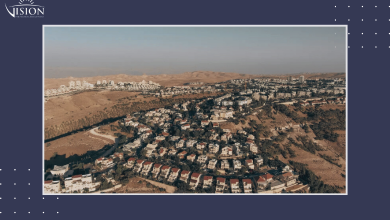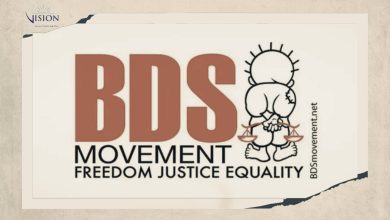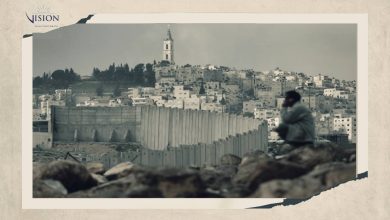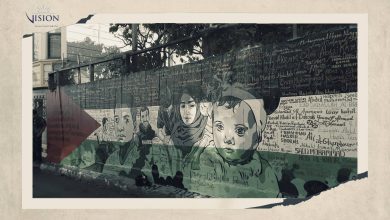The Monthly Skimm April, 2021: Palestinian Elections Postponement, Moroccan Split Over Normalization and Mansour Abbas’s Pragmatism
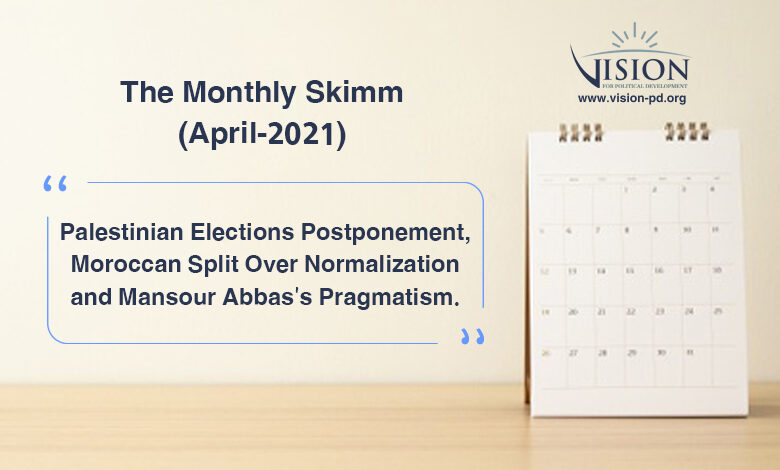
Mohammed Hasan
Postponement of the Palestinian elections
The postponement of the Palestinian elections amounts to its cancelation. In his analysis published in Washington institute, al-Omari argues that the electoral scene has exposed the dysfunction of Palestinian Political system. Postponing the elections raises concern; the most immediate one is that it can engender instability on the ground. The recent clashes in Jerusalem and rocket fire from Gaza are reminders of the ongoing possibility of violence although it is not inevitable and there are periods of quiet. It is a dynamic and convoluted situation as there are counterbalancing influences.
In the short term, Hamas appears to be the benefactor of the elections’ cancelation as they have publically condemned the elections’ cancelation and they are subsequently in a good position to assert that they represent the Palestinian majority who had sought the elections (al-Omari, 2021). Fatah, on the other hand, will confront a political crisis. Inescapably, Abbas will suffer further erosion in public standing due to his decision to cancel the elections. Additionally, Abbas will face unparalleled challenges from within the movement as it has become fissured into 3 factions and it is unlikely that Abbas will conciliate with said factions such as those led by Marwan Barghouthi and Mohammed Dahlan. Jibril Rojoub is perceived as the biggest loser as he is associated with Abbas’s circle and, by extension, the election’s cancelation. The aforementioned complications will add to the already existing hurdles relating to the public perception the PA’s corruption and mismanagement and there has been diminished public faith in the PA in general (al-Omari, 2021).
The tripartite division of Fatah has challenged the authority of Abu Mazen who had previously reigned unchallenged for 16 years as the leader of the national movement. This raises the specter of doubt about Fatah’s leadership and can contribute to the acceleration of the inheritance wars, undermine security in the West Bank, and enhance Hamas’s stature as an alternative. These aforementioned indications may lead Israel to increasingly intervene into the Palestinian Territories which would increase the likelihood of clashes between the Palestinians and Israelis, and possibly increase tensions between Israel and the Arab countries. Additionally, this could negatively influence the Abraham Accords (Tzoreff, 2021).
How Can Biden’s Administration Advance the Peace Process Again?
Instead of attempting to reboot the anemic, so-called peace process, which only sustains the occupation, the Biden administration should adopt a rights-based tack as its core strategy towards the conflict. This approach would aim to equally ensure the rights and security of Palestinians and Israelis in a manner consistent with international law. Said approach has been recommended by a number of writers in Caringie such as Danial Levy and Zaha Hassan(Hasan, 2021).
Would Separatism with Palestinians be the New Israeli Approach?
“The Annapolis Process: A Missed Opportunity for a Two-State Solution” is a study published by Israeli authors who have occupied a central role in organizing, planning, and conducting meetings of negotiation between Israelis and Palestinians. They concluded that the Israeli leaders would do well to consider an agreed-upon separation from the Palestinians. Furthermore, they should initiate independent initiatives without hampering any prospective diplomatic process (Dekel, 2021).
Morocco’s Division Upon the Normalization with Israel
Morocco is witnessing a noticeable split regarding normalization with Israel. There are two contradicting narratives related to normalization. The first one is represented by (#Morocco First). This represents the opinion that normalization as a good approach for Morocco. The second one (#Normalization_Is_Treason) represents the long-standing Moroccan attitude towards the Palestine-Israel conflict. This is related to the change of identity in Morocco, where the nationalist orientation of Morocco is getting declined in favor of the Moroccan national identity. Considering pro-normalization in Morocco, Moroccan youth have more priorities to focus on than the normalization issue. If so, this would position the normalization debates to a limited sphere under the elites’ pragmatic calculations (Rddad, 2021).
Mansour Abbas’s Pragmatism Between Realism and Criticism
In his article “Mansour Abbas: Islamist Kingmaker or the “Good Arab,”” Kasbari describes an unprecedented change in Abbas Mansour’s political orientation. Since the Abraham accords, Mansour emphasizes partnership, brotherhood, and equality with the Israelis. What makes Mansour different than other Arab statesmen (considering the Palestinians inside the territories of 1948) is his disinclination to challenge the Zionist annexation process and his overt willingness to abandon Palestinian identity and cause in a gambit to win over the Israeli right wing and, more generally, the Israeli public by playing the role of the “Good Arab” (Kasbari, 2021).
This terminology is commonly found in Israeli rhetoric to describe the ideal Arab citizen as one who is loyal, submissive, and obedient. Arabs are divided over Abbas Mansour’s novel political orientation between those who support it for its pragmatic benefits and those who reject it as an act of betrayal (Kasbari, 2021).
At first glance Abbas Mansour’s attempt to reach out to the Israeli right wing and general public appears to be linked to his conservative, ethnical, and religious background. Nevertheless, political elites are concerned that he is emblematic of political Islam’s gambit to penetrate into the political system in order to achieve ideological Islamic goals. In that sense, he would be comparable to Erdogan, Hamas, and Hizbollah (Diker, 2021).
Russian Ambitions in the Region as a Strategic Threat to Israeli InterestsWilson Centre published a report about the security challenges imposed by Russian push back against US-Israel hegemony in the Middle East. It concluded that other hegemonies such as Russia, China, Turkey, and Iran are replacing the space that the US formerly occupied for decades. Those powers adopt dissimilar goals and capabilities in their Middle East policies. In spite of the lack in capability to establish regional order matching its own design, Russia is considerably influential in countries such as Libya and Syria, and they are working with the ambitions of Gulf countries like Egypt. At the moment, Russia is not threatening American-Israeli cooperation in the region; however, Russia’s role in the region could become an urgent concern and a strategic challenge, particularly in Syria and Iran (WilsonCenter, 2021).
Reference:
al-Omari, G. (2021). To Vote or Not to Vote: Implications of Postponing Palestinian Elections. Retrieved from Washington Institute : https://www.washingtoninstitute.org/policy-analysis/vote-or-not-vote-implications-postponing-palestinian-elections
Dekel, U. (2021). The Annapolis Process: A Missed Opportunity for a Two-State Solution? Retrieved from The Institute for National Security Studies: https://www.inss.org.il/publication/annapolis/
Diker, D. (2021). Mansour Abbas, Mahmoud Abbas, and the Abraham Effect. Retrieved from Jerusalim Center for Public Affairs: https://jcpa.org/article/mansour-abbas-mahmoud-abbas-and-the-abraham-effect/
Hasan, Z. (2021). Breaking the Israel-Palestine Status Quo. Retrieved from Carnegie: https://carnegieendowment.org/2021/04/19/breaking-israel-palestine-status-quo-pub-84167
Kasbari, C. (2021). Mansour Abbas: Islamist kingmaker or the “good Arab”? Retrieved from Middle East Institute : https://www.mei.edu/publications/mansour-abbas-islamist-kingmaker-or-good-arab
Rddad, S. (2021). The Conflicting Moroccan Responses to Normalization with Israel. Retrieved from Washington Institute : https://www.washingtoninstitute.org/policy-analysis/conflicting-moroccan-responses-normalization-israel
Tzoreff, Y. (2021). Fatah and the Legislative Council Elections: The Split and Its Implications. Retrieved from The Institute for National Security Studies: https://www.inss.org.il/publication/fatah-pa-elections/
WilsonCenter. (2021). Russia in the Middle East: National Security Challenges for the United States and Israel in the Biden Era . Retrieved from WilsonCenter: https://www.wilsoncenter.org/publication/report-russia-middle-east-national-security-challenges-united-states-and-israel-biden


